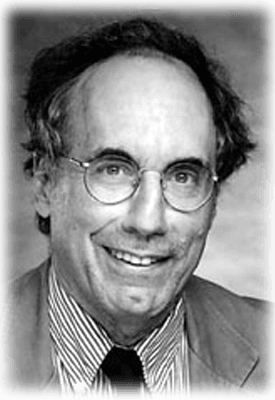
The Museum of Jewish Heritage in New York has spiked a planned appearance by John Judis, author of the groundbreaking new history of Truman and the establishment of Israel, as too controversial.
I’m told that Judis had agreed on a date, June 1, with the programming director of the museum, Gabriel Sanders, and that Sanders went about lining up other speakers to appear with Judis on a panel about his book. Then Sanders abruptly got back to Judis and said the subject had been deemed too hot by the powers-that-be at the museum, they feared there would be protests of the event.
I reached out to Betsy Aldredge, who does publicity for the museum. She said,
“I looked into the situation and here is our comment: We were interested in the book. We considered it, but were concerned that the controversy would overshadow the content. Therefore, we decided not to move forward with the event.”
The controversy? Jeffrey Goldberg doesn’t like the book. Neither does the Wall Street Journal. Is that a controversy? If the book is worthy of discussion, why worry about a controversy?
The book says that Truman personally opposed the partition of Palestine in 1947 because he did not believe in establishing nations that failed to separate church and state, but his arm was twisted by the Zionist lobby in the U.S. and he caved on his principles out of political concern.
Judis is a highly-respected journalist in his 60s with a reputation for sobriety and discretion. He identifies himself with an American Reform Jewish tradition and says that he is for a two-state solution. He has long worked for The New Republic, a magazine that has historically been supportive of Israel, and that ran an excerpt of his book.
(Ah, open debate in the American Jewish community. Seven million Jews, one opinion permitted.)


I’ve only started the book, which I think is good so far. To me the real value of it is that Judis seems to be trying to tell the story of Zionism fairly. The tradition has been to present the antisemitism across Europe which motivated people to think (quite understandably) that they needed a Jewish state and whitewash the uglier aspects of Zionist thinking. Judis, so far as I have gotten into it, still tells the story of how antisemitism motivated the Zionist dream for Jewish self-determination, but he doesn’t gloss over the imperialist attitudes towards Arabs and their rights. That, of course, is what makes the book “controversial”.
He also presents a complex portrait of the non-Jewish supporters of a Jewish state–sometimes people are simply lumped into one of two categories as either philosemites or antisemites, but the reality is that Christian Zionists often partake of characteristics of both. Which isn’t that surprising–if you glorify a group, then you’re already thinking like a racist in some ways.
I’ve ordered the book. I wonder what it will bring to the subject that Michael Cohen did not provide in “Truman and Israel” which is outstanding, used Max Lowenthal’s papers for the first time, showed how clearly Zionism outflanked the diplomatic and military establishment, via key operatives in Truman’s inner circle, bipartisan control of the parties and Congress, financial contributions, enlisting gentile opinion, etc. Cohen was torn between his scholarly integrity and competence, and reluctance to admit the picture he painted. At the very end he tries to claim the circumstances were unique, but they became a blueprint for Zionist influence, at least in its “representational” phase. A more comprehensive and insidious phase in which Zionist influence started to constitute the government, not just influence it, began with the neocons under Reagan (IMO, not Cohen’s)
http://www.ucpress.edu/op.php?isbn=9780520068049
The ToC is accessible on the UC Press web site. Chap 15 is about “consensus on strategic asset”. This reflects Pentagon appraisals of Israel’s military prowess in the war, but as Cohen acknowledges, such judgments were “ephemeral”, meaning overtaken by larger Cold War strategy, in which the US cultivated Arab nationalism as a potential Cold War asset, for a time at least.
Israel lobby does not exist huh? Another censorship by Israel/lobby.
Judiss should send the museum a thank you note—labeling a book as controversial is a sure fire way to get people to buy and read it.
I’m probably not going to bother probably since I’ve already got volumes and volumes of info and docs on Truman and the zionist.
I hope it is reviewed on C-span books.
Phil Weiss writes:
Judis is a highly-respected journalist in his 60s with a reputation for sobriety and discretion. He identifies himself with an American Reform Jewish tradition and says that he is for a two-state solution. He has long worked for The New Republic, a magazine that has historically been supportive of Israel, and that ran an excerpt of his book.
Mearsheimer and Walt are highly respected scholars, with reputations for sobriety and discretion. They support the two-state solution. Nevertheless, the Lobby tried very hard to smear these two card-carrying members of the foreign policy Establishment. Without success.
Think that the Lobby will try to smear Judis also? Will Eric Alterman write that Judis’ book is “awful”, written by an “Israel hater”? Stay tuned. See if Judis gets the Max Blumenthal treatment.